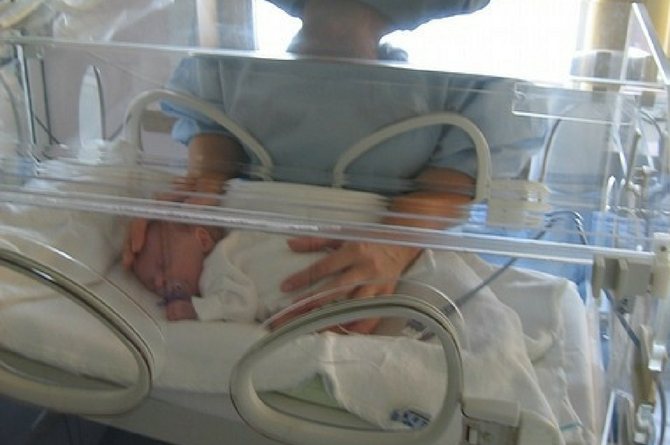Millions of deliveries experience complications. There are certain risks in pregnancy. Women must take care of them if they have previous history of miscarriages, preterm labor or they are getting pregnant after the tubal reversal surgery.
Millions of deliveries experience complications. There are certain risks in pregnancy. Women must take care of them if they have previous history of miscarriages, preterm labor or they are getting pregnant after the tubal reversalsurgery. A great number of women have to undergo cesarean because of many complications. Over the past 30 years, there is an increase in the number of cesarean deliveries. The following are some of the labor complications.
Umbilical cord problems
Normally the cord is wrapped around the body of the baby and the doctor does not take it seriously because it does not cause any problem but sometimes the umbilical cord is looped around the neck of the baby and there is a risk of compression but in a normal birth, it is not compressed. When the cord is compressed, the blood flow to the fetus can decrease and the heart rate will also dip.
Perineal lacerations
The perineum may tear. When it happens, the condition becomes serious. The chances of this problem are more with a first baby. When there is a first degree tear, only a few or no stitches are required. There is also a less pain felt. But in second degree tear, the muscles are torn and stitches become necessary. Third and fourth degree tears are very serious and rare. The chances of perineal trauma during birth can be reduced with the help of perinealmassagein the last month of pregnancy.
Abnormal rhythm or fetal heart rate
The normal range of fetal heart rate is 110 to 160 beats per minute. When the fetal heart rate is outside this range or the rhythm is unusual, it is said to be abnormal. The doctor will consider the length and pattern of the abnormality and the time of delivery before deciding whether to continue labor or perform aC-section.
Amniotic cavity problems
It is the condition when there is too much or too little amniotic fluid. There is also an amniotic cavity problem when the membranes that hold the amniotic fluid rupture before labor or 37 weeks of pregnancy. It is common to have an excessive and it hardly causes problems during labor but when the water breaks, the umbilical cord can be compressed. When this happens the water is inserted in the amniotic cavity and when it happens before the contractions, they are expected to begin within 24 hours.
No progress in labor
When the labor stalls, C section becomes necessary. In case of failed labor, the women are advised to stay at home unless the contractions are three minutes apart if everything is ok with the women.
When there is a serious complication and a woman is unable to deliver normally, C section becomes necessary. There are certain risks and complications in the Cesarean like infection, hemorrhage or increased blood loss, injury to organs, adhesions. Mostly the first-time mothers have more chances to experience a prolonged labor and when it happens, there is a risk of infection to both the mother and the baby.


No comments:
Post a Comment